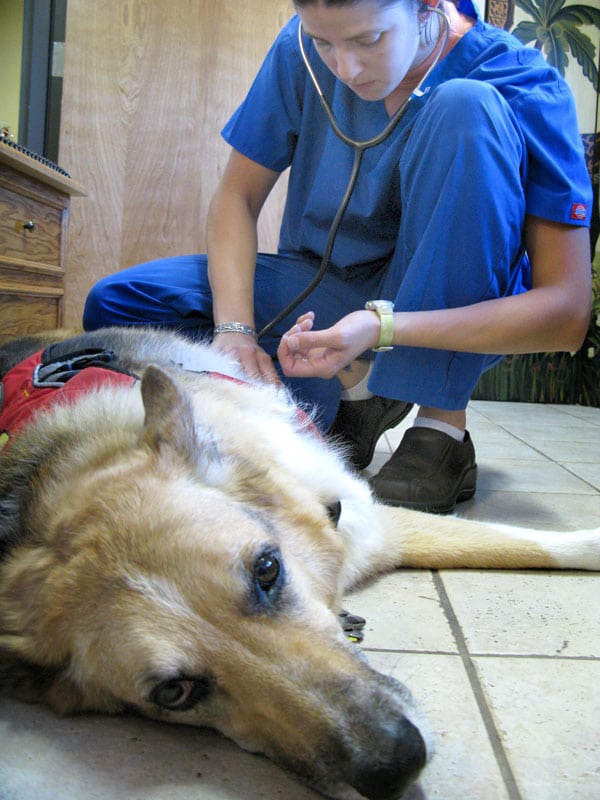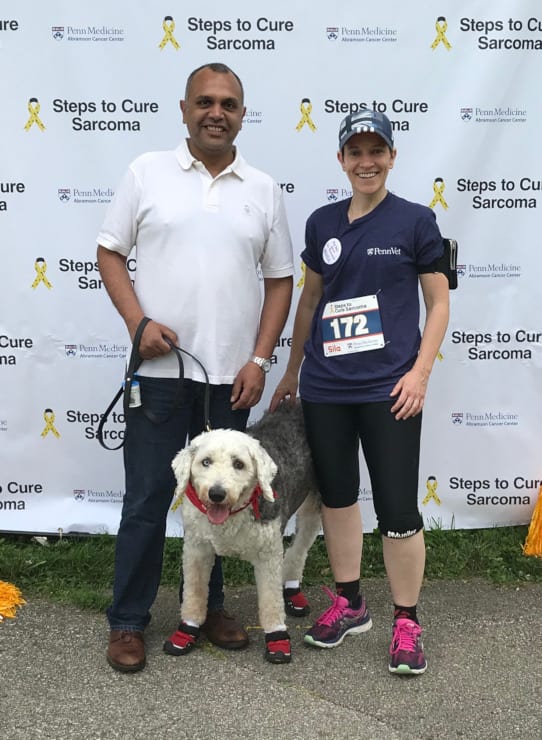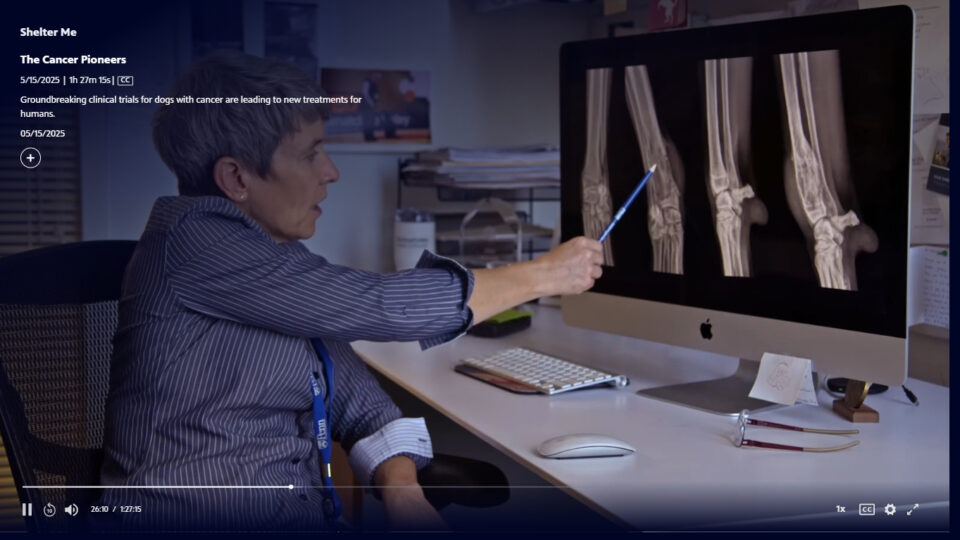If your Tripawd has osteosarcoma and you live in the Philadelphia area (or are willing to travel there), your dog may be eligible for a new osteosarcoma clinical trial at the University of Pennsylvania’s School of Veterinary Medicine (aka “PennVet”).
Why Pet Cancer Clinical Trials Matter
Cancer sucks, but treatment has sure come a long way since Tripawds Chief Fun Officer Jerry G. Dawg was diagnosed in 2006!

Today, immunotherapy for pet cancer is making new breakthroughs for treatment and control of all cancers, but especially when it comes to bone cancer in dogs. If you have the opportunity to participate in a clinical trial, we hope you will say “Count me in!”
About 10 years ago, Tripawd Dexter‘s parents said “Yes!” to a clinical trial at PennVet, for the very first canine osteosarcoma vaccine. And guess what?
Dexter the Tripawd hero went on to thrive for seven years after his diagnosis!

Dexter got to live out his normal life expectancy because his parents participated in a dog cancer clinical trial. We hope that if you are battling cancer with your dog, you’ll say “Yes!” to a clinical trial too.
A New PennVet Clinical Trial: Cell Therapy for Metastatic Osteosarcoma
Tripawds lucky enough to live near Penn Vet (and anyone willing to travel there) are wanted for the Cell Therapy for Metastatic Osteosarcoma Clinical Trial.
The trial is led by Dexter’s Penn Vet hero, Dr. Nicola Mason, BVetMed, PhD, DACVIM, FRCVS and Antonia Rotolo, the director of effector cell therapies in the Comparative Immunotherapy Program at Penn Vet. The official description says:
In this study we will investigate the therapeutic potential of a type of white blood cell known as invariant natural killer T (iNKT) cells that are made from the blood of a healthy donor dog. iNKT cells are potent immune cells that kill cancer cells in mouse models and in some human cancer patients.
In this study, we will use iNKT cells that express a cancer targeting receptor known as a chimeric antigen receptor (CAR). The CAR directs the modified iNKT cells to the cancer cells which are then killed. The CAR-iNKT cells also will further activate the patient’s own immune system to help kill the cancer cells.
The purpose of this study is to determine the safety of CAR-iNKT cells, their maximum tolerated dose, how long they will remain in the patient and their effectiveness against bone cancer that has spread to the lungs.
To learn more, see the Cell Therapy for Metastatic Osteosarcoma information on the American Veterinary Medical Association’s Veterinary Clinical Trials website.
Watch the PBS documentary featuring Dr. Mason and Penn Vet’s work, “Shelter Me: Cancer Pioneers.” Meet clinical trial heroes and learn how clinical trials make a difference for pets and people with cancer.

